- Sitting down for a warm, comforting mug of tea can be a great morning or afternoon ritual. But do you actually know what’s in your cup? If it’s green tea, you may be surprised at how beneficial it is for your body and mind.
- Green tea has several science-backed benefits, including helping to fight inflammation, promote relaxation and boost weight management.
- Get all the details on what you should know about this health-supportive beverage, plus tips to always brew the perfect cups of green tea for yourself and others.
Green tea is a well-known superfood, and it earns the title with ease. But what exactly separates this type of tea from the rest of the pack?
Our comprehensive breakdown of the benefits of green tea gives you a better idea of why you should brew a mug to start (or end) your day. And though there are a few notable but lesser-known downsides, we outline how you can beat them to make this drink do as much for you as possible.
So grab a mug, find a comfy spot and get ready for tea time!
What is green tea?
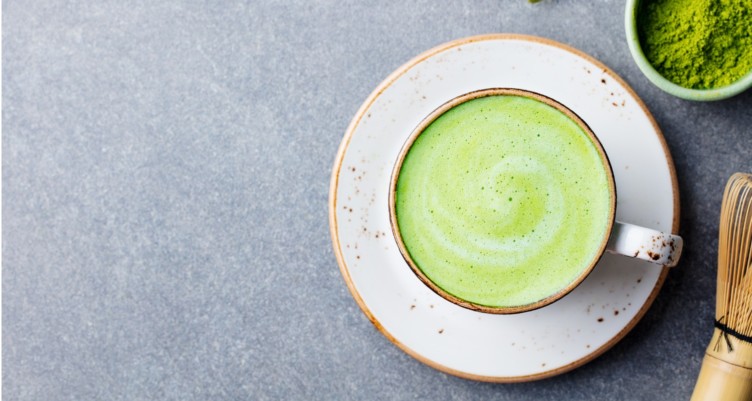
Green tea is a delicious and beneficial beverage made from the leaves of the Camellia sinensis plant. To be turned into tea, the leaves are quickly heated to help maintain their fresh green color and flavors. You can drink it hot or cold depending on your mood or preferences.
Green tea is reportedly the first herbal tea ever brewed, dating back as far as 2737 B.C. Its unique effects on the human body have kept green tea consumption popular over the last 4,700 years. (Talk about longevity!) Green tea originates in China, but today you can also find Japanese green tea and Korean green tea.
Interestingly, the most common types of tea—green, black, yellow and white—all come from the same plant: Camellia sinensis. The different end products depend on how they are processed.
Of all the varieties, green tea is one of the best for you. It’s processed gently to minimize oxidation, so many of its most useful compounds stay intact.
What is matcha?
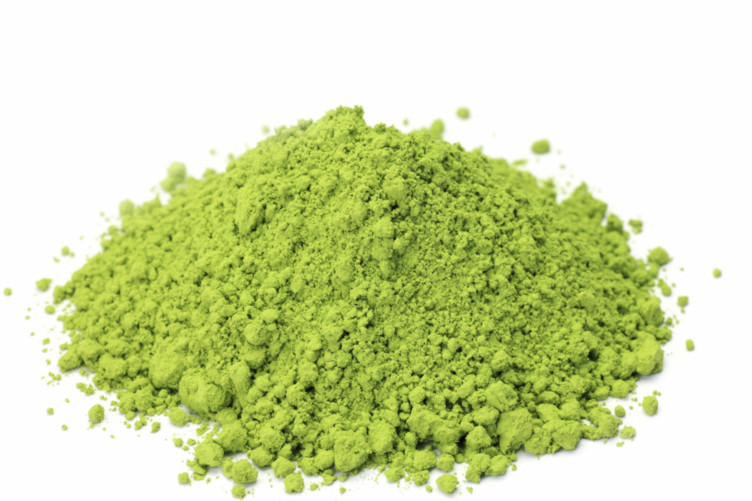
Matcha is another form of green tea that brings similar health benefits and has tons of tasty applications in food and beverages. It’s made from dried green tea leaves that have been finely ground into a powder, which you can stir into hot water, turn into a latte, blend into a smoothie or use to add a pleasant, vegetal flavor (and a fun green color) to your favorite recipes.
Matcha also comes from the Camellia sinensis plant, but because it’s grown slightly differently, it has its own unique nutrient profile. Leaves grown for matcha are shaded from the sun, which helps boost their amino acid content. Since the entire tea leaf is ground into matcha powder, it typically has more caffeine and antioxidants than traditional green tea.
Like green tea and green tea extract, matcha can have health and wellness benefits for your liver, brain, heart, weight management and beyond.
Related: Rooibos Tea Benefits Weight Management, Plus 9 Other Reasons to Drink It
Green tea benefits
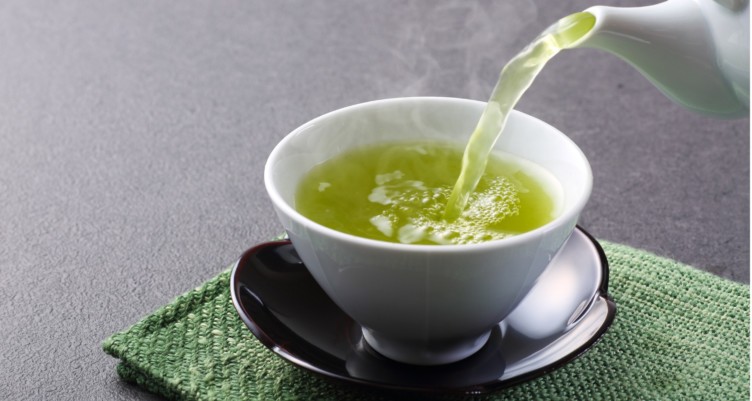
Once you learn more about green tea benefits, it’s easy to understand why more and more people are incorporating this refreshing beverage into their daily routine. Below, we’ve highlighted just a handful of the many health benefits of green tea.
Fight free radicals and protect your heart with polyphenols
Green tea is loaded with polyphenols, a class of potent antioxidant compounds. Studies suggest that these anti-inflammatory green tea polyphenols may protect you from inflammation associated with oxidative stress.[1] [2].
Specifically, this beverage is a great source of green tea catechins and flavonoids, the same polyphenols found in chocolate and coffee beans.[3] [4]
The catechins in green tea may promote cardiovascular health by improving LDL cholesterol markers, according to an analysis of 14 randomized, controlled studies.[5] Decreasing oxidized LDL may improve heart health and may support a lower risk of heart attack and cardiovascular disease (aka heart disease). Less oxidized LDL is also often a sign of decreased inflammation. Catechins also may counter high blood pressure.[6]
The study points out that green tea extracts worked as well as fresh green tea, so if you want the benefits but don’t like the drink, you can always take a supplement.
A last note about catechins: When they bind to calcium ions, they become biologically inactive.[7] If you live in an area with hard water, make your tea with water bottled in glass (not mineral water—distilled is best) to get the greatest benefit from green tea’s catechins. Don’t add milk either; it’ll do the same thing.
Green tea benefits for skin

Green tea drinkers may experience benefits from a skin health perspective. Research has found that green tea can be effective to help deal with skin conditions like acne, rosacea and atopic dermatitis when applied to the skin and taken as a supplement.[8]
It can also help fight off aging by improving your skin’s elasticity and reducing the effects of skin damage caused by the sun.[9]
You can get many of these health benefits just by drinking green tea, or you can apply green tea topical products to your skin directly.
Relax with green tea and L-theanine
One of the beneficial effects of green tea is that it contains amino acids, the building blocks for proteins in your body. L-theanine is the most abundant amino acid in green tea, making up 1-2% of the dry weight of the leaves.[10] It’s the compound responsible for green tea’s unique taste.
These days, theanine is often used as a food additive to lend a little extra umami (savory) flavor to dishes, much like MSG does. The similarities between the two end there, because unlike MSG, theanine does all kinds of good for you.
It promotes relaxation, especially in those who are anxious, by increasing alpha brain waves. Alpha waves are electrical currents that run across the surface of your brain. They’re associated with a relaxed mental state. Alpha waves increase during meditation, quiet rest and after you ingest theanine. One study found that 50 mg of theanine upped alpha wave production by ~20%.[11]
You get about 8 mg of theanine from a cup of green tea. No word on whether a dose that low will help soothe anxious feelings, but considering green tea’s 4,000-year-old reputation as a calming drink, it’s certainly possible.
May help burn fat
If you’re looking for fat-burning supplements, you should know that green tea has shown promising results. An extract of green tea increased total energy expenditure by 4% in a 24-hour period, and it shifted the body’s metabolic processes toward burning fat instead of carbs.[12]
Another study gave overweight individuals either freshly brewed green tea, green tea extract or water over the course of eight weeks. Both green tea groups lost significantly more weight and showed a decreasing trend in LDL cholesterol.[13] The people drinking freshly brewed green tea lost about a pound more on average than did the ones taking green tea extract.
Maintaining a healthy weight may, in turn, help lead to a reduced risk of type 2 diabetes and other ailments.
Related: Are You a Sugar Burner or a Fat Burner? Why Your Metabolism Can Do Both
Green tea extract benefits
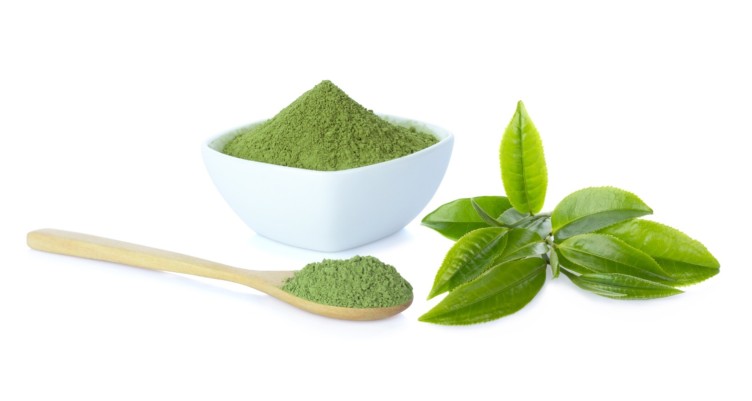
Green tea extract, which is simply a concentrated form of green tea, offers similar benefits to drinking green tea. It’s a good source of antioxidants and may support weight management and heart health, too. Research has also found that taking green tea extract works just as well as drinking fresh green tea when it comes to catechins and flavonoids, which have a host of health benefits.
Green tea extracts can be handy if you’re short on time and just want to pop a quick capsule along with the rest of your supplement stack, especially since green tea supplements contain roughly the same ingredients and caffeine as a cup of green tea. As with other supplements, make sure to do your research and seek out brands and products that clearly list the ingredients, nutrition facts and other transparent information. Also keep an eye out for extra ingredients and fillers, such as added sugar.
Also remember to consult with your doctor or dietitian for medical advice before supplementing with green tea extract, and be sure to discuss an amount that’s right for you. Consuming too much green tea extract can be detrimental to your health, and you may experience side effects like constipation and an upset stomach.
Related: Apple Cider Vinegar’s Benefits: Lose Weight, Heal Your Gut and Treat Acne
Drawbacks to green tea (and how to beat them)
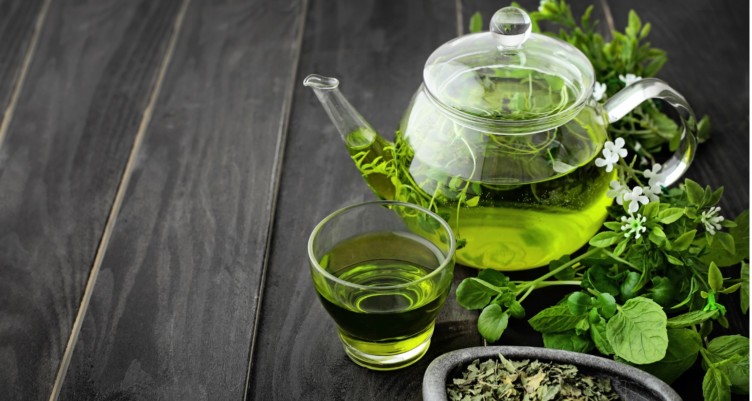
There are a couple of downsides to green tea, but easy ways exist to minimize their impact. Here’s what you should know before you brew.
1. Mycotoxins
Poorly grown or processed tea can have appreciable levels of ochratoxin A and aflatoxin.[14] Fortunately, this problem is more prevalent in black tea than it is in green tea, but green tea can still harbor mold, especially if it’s stored improperly.
Pro tip: Buy high-quality green tea. When you’re shopping, look for green tea brands that are transparent about their sourcing, processes and ingredients. Also consider buying organic green tea, which is grown without pesticides or herbicides.
2. Nutrient absorption
Green tea may prevent folic acid absorption, especially in pregnant women.[15] [16] Folic acid/folate is important for fetal development, red blood cell production and cardiovascular health. It may also be neuroprotective.
Pro tip: If you’re pregnant, you may want to avoid green tea. For everyone else, up your folate intake if you drink green tea on a regular basis. Try adding a couple of extra egg yolks to your diet—they’re a great source of folate. For maximum absorption, don’t eat them within an hour of drinking green tea.
3. Fluoride and oxalates
Tea plants absorb a lot of fluoride from the soil, and green tea is moderately high in it. Green tea also contains oxalate, an antinutrient that prevents calcium absorption and can contribute to kidney stones.
Pro tip: Stick to two or three cups of tea a day to keep fluoride and oxalate low. Three cups a day or fewer should be fine for most people, but excessive tea consumption can cause problems.[17]
Green tea recipes
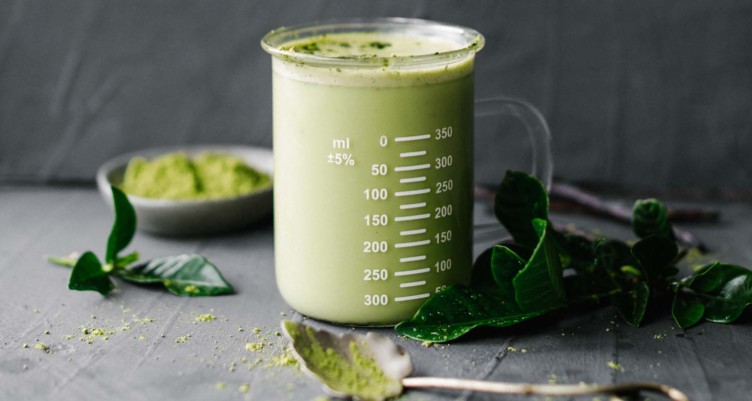
Ready to start brewing green tea at home? Try these recipes for new ways to drink green tea, from iced drinks to delicious spreads.
- Ginger-Mint Green Tea Cooler: This refreshing drink gets a bit of a spicy kick from fresh-grated ginger.
- Keto Matcha Coconut Butter: This recipe puts a yummy (and antioxidant-rich!) matcha spin on coconut butter.
- Matcha Soda: Made with matcha tea powder and soda or sparkling water, this easy recipe produces a bubbly and refreshing drink.
- Vanilla Matcha Latte: Switch up your morning routine with this well-rounded and subtly earthy matcha latte.
- Berry Matcha Smoothie: Energize your day with this delicious (and highly nutritious!) smoothie.
- Keto Iced Matcha Latte: Just a few minutes in the blender is all it takes to create this nourishing matcha-filled treat.
Want to learn how to make the best cup of tea, ever? Check out our Bulletproof Tea Guide.
Join the Bulletproof Revolution
Sign up for early access to sales, product launches, the latest Bulletproof news and more!

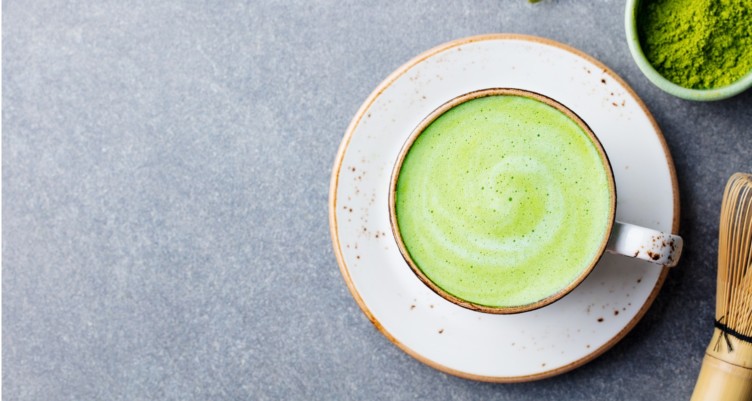
Thank you for your sharing. I am worried that I lack creative ideas. It is your article that makes me full of hope. Thank you. But, I have a question, can you help me? https://www.binance.info/ro/join?ref=PORL8W0Z
I don’t think the title of your article matches the content lol. Just kidding, mainly because I had some doubts after reading the article. https://accounts.binance.com/sk/register?ref=RQUR4BEO
I like this web site it’s a master piece! Glad I found this ohttps://69v.topn google.Blog monetyze